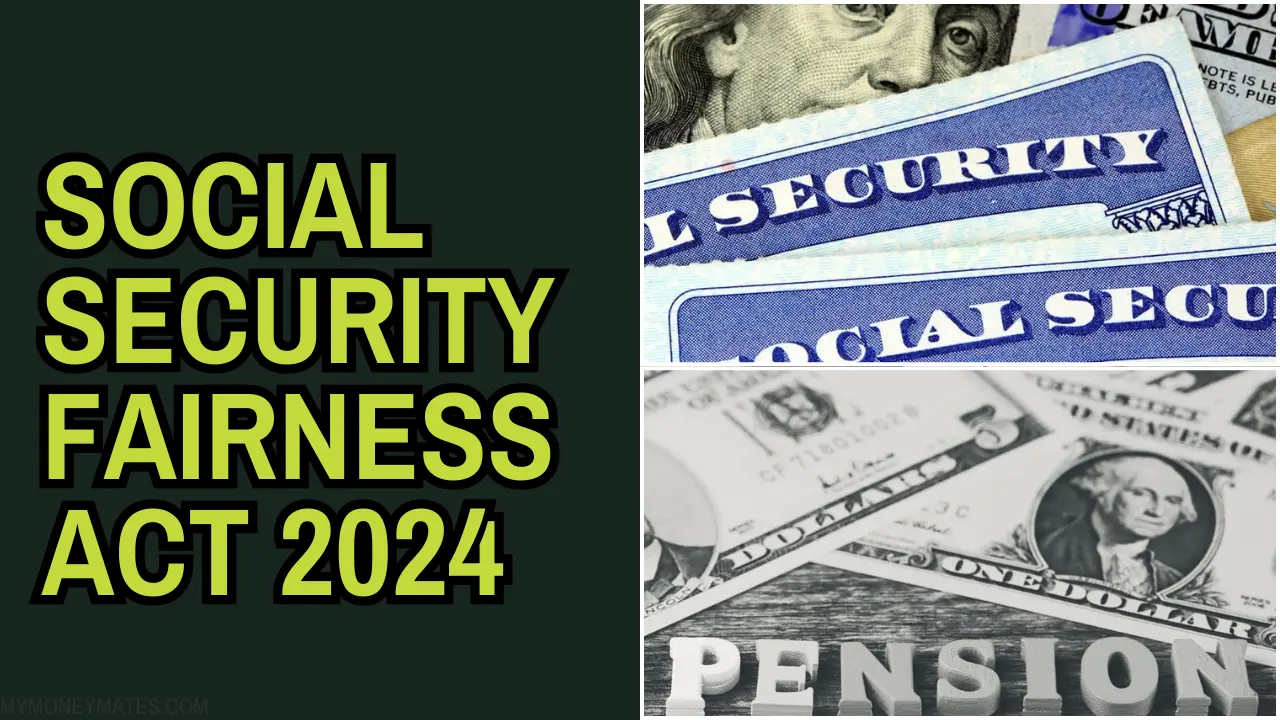The Social Security Fairness Act has been a hot topic for individuals impacted by two complex rules: the Windfall Elimination Provision (WEP) and the Government Pension Offset (GPO). These rules reduce Social Security benefits for certain individuals, often those with government pensions. In this article, we’ll break down the key concepts, explain how these rules work, and highlight the proposed changes under the Social Security Fairness Act.
What is the Social Security Fairness Act?

The Social Security Fairness Act is a proposed bill in Congress designed to repeal two controversial Social Security rules:
- Windfall Elimination Provision (WEP)
- Government Pension Offset (GPO)
These provisions were introduced decades ago to prevent “double-dipping,” which occurs when individuals collect both Social Security benefits and a government pension without paying fully into Social Security. However, critics argue that these rules unfairly penalize public sector workers, like teachers, police officers, and firefighters.
The Social Security Fairness Act aims to ensure that everyone receives fair Social Security benefits, regardless of their pension status.
How Does Social Security Work in a Typical Case?
For most workers, Social Security works like this:
- Payroll Contributions:
- 6.2% of your paycheck is deducted for Social Security taxes (called FICA).
- Your employer matches this amount, contributing another 6.2%.
- This totals 12.4%, which funds the Social Security system.
- Trust Fund Distribution:
- The money goes to the Social Security Administration (SSA) and is distributed to retirees and other beneficiaries.
- Benefits Upon Retirement:
- When you retire, you receive monthly Social Security benefits based on how much you contributed during your working years.
This system works smoothly for most private-sector workers.
The Windfall Elimination Provision (WEP): What Is It?

- Hold positions with the state or local governments that are not covered by Social Security.
- Receive a pension from these jobs.
How WEP Works:
If you worked in a government job for 30 years, paying into a pension instead of Social Security, and later worked a private-sector job for 10-15 years contributing to Social Security, your Social Security benefits could be reduced.
The reasoning is that you’re already receiving a pension, so the SSA adjusts your benefits to avoid what they see as a “windfall.”
Example:
- Police Officer Scenario
- A police officer works for 30 years, paying into a government pension.
- After retiring, they take a private-sector job for 15 years, contributing to Social Security.
- When they apply for Social Security, their benefits are reduced due to WEP because they already receive a pension.
The Government Pension Offset (GPO): What Is It?

The GPO applies to spousal or survivor benefits under Social Security. It reduces these benefits for individuals receiving a government pension.
How GPO Works:
If your spouse qualifies for Social Security and you are eligible for spousal benefits, GPO can reduce your spousal benefits by up to two-thirds of your pension amount.
Example:
- Teacher Scenario
- A teacher pays into a state pension for 30 years and never contributes to Social Security.
- Their spouse works in a private-sector job, contributing to Social Security.
- Upon retirement, the teacher applies for spousal benefits but finds these benefits reduced by two-thirds of their pension amount due to GPO.
Why Are WEP and GPO Controversial?
These provisions often feel unfair because:
- Workers who paid into Social Security for part of their careers may feel penalized.
- Spouses of government workers often receive reduced benefits, even though they didn’t contribute to the pension themselves.
How the Social Security Fairness Act Addresses These Issues
The Social Security Fairness Act proposes to eliminate both the WEP and GPO. This would allow public-sector workers to:
- Receive full Social Security benefits based on their private-sector contributions.
- Access spousal and survivor benefits without GPO reductions.
Benefits of the Social Security Fairness Act:
- Fair Treatment:
- Public-sector workers would no longer face reductions in benefits due to their pensions.
- Simpler System:
- Eliminating WEP and GPO would make the Social Security system less confusing.
- Support for Retirees:
- Many retirees rely heavily on Social Security. Removing these reductions would improve financial security.
Comparing Scenarios
Without WEP and GPO:
- A teacher who worked 30 years in a state pension system and later worked 15 years in the private sector could collect both their pension and full Social Security benefits.
With WEP and GPO:
- The same teacher faces a reduced Social Security benefit due to WEP. If married, their spousal benefits may also be reduced by GPO.
The Unfairness of the Current System
Critics argue that WEP and GPO are unfair because:
- Public-sector workers who contributed to pensions are penalized, even if they also contributed to Social Security for many years.
- Private-sector workers with retirement accounts (e.g., 401(k)s) are not subject to similar reductions.
Current Status of the Social Security Fairness Act

As of 2024, the Social Security Fairness Act has gained bipartisan support in Congress. Advocates continue to push for its adoption, citing the financial struggles of retirees impacted by WEP and GPO.
Read Also - 3 Strong Buy Nvidia ETF With Big Exposure to Nvidia
Conclusion
The Social Security Fairness Act represents an effort to address longstanding inequities in the Social Security system. By eliminating the Windfall Elimination Provision (WEP) and Government Pension Offset (GPO), it would ensure that all retirees, including public-sector workers, receive fair treatment.
For many, this act is more than just a policy change—it’s a step toward financial security and equality. Advocating for the repeal of WEP and GPO is about creating a system that treats everyone fairly, regardless of their career or pension status.
If you are impacted by these provisions or support fair Social Security benefits for all, consider contacting your representatives to express your support for the Social Security Fairness Act.
Advice for you :
This article is just for information purpose. So if you want to make any kind of investment, please consult the experts yourself. Because if you make any kind of loss or profit, then we are not responsible for that. And to see such useful information at the right time, visit https://mymoneymates.com
Faq
What is the Social Security Fairness Act?
The Social Security Fairness Act is a proposed bill that seeks to repeal the Windfall Elimination Provision (WEP) and the Government Pension Offset (GPO). These two provisions currently reduce Social Security benefits for certain public-sector workers, such as teachers, police officers, and firefighters, who also receive government pensions.
